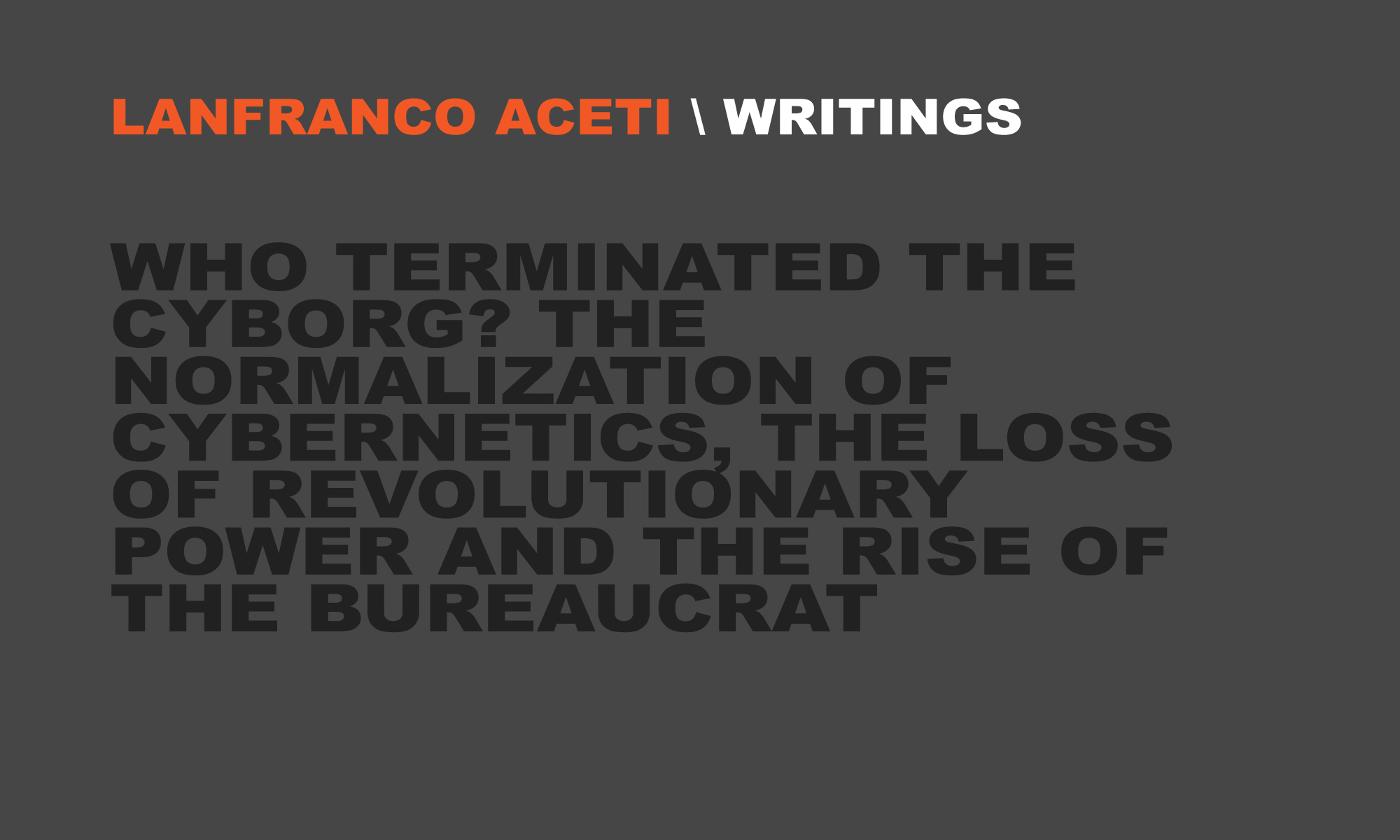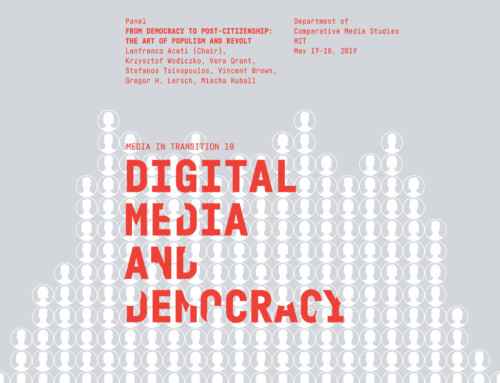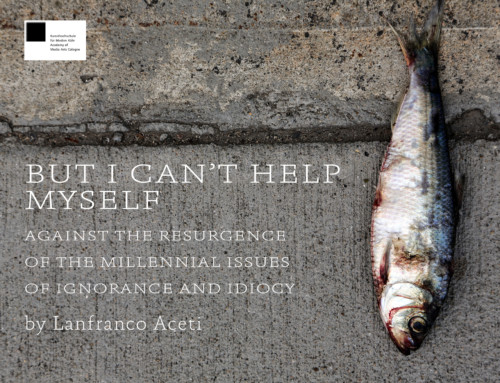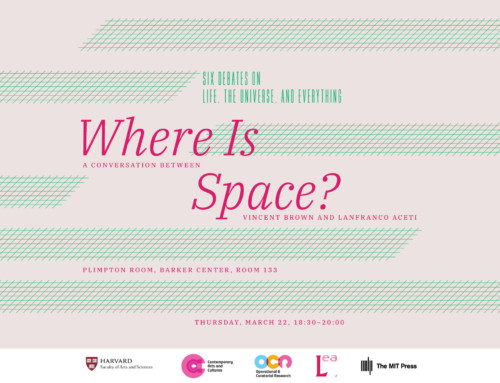This was my keynote for the IMAC2012 and the Re-New Digital Art Festival, at Aalborg University Copenhagen. The conference was chaired by Morten Søndergaard. The annual Re-New digital arts festival presents a wide selection of the newest ground-breaking works in digital music, video, installations, performative, and distributed / collaborative art. The full essay is forthcoming with the title: “Who Terminated the Cyborg? The Normalization of Cybernetics, the Loss of Revolutionary Power and the Rise of the Bureaucrat.”
ABSTRACT
What remains of the revolutionary value of the cyborg? Donna Haraway’s vision that the cyborg would bring a new dawn, challenging the capitalistic, militaristic and patriarchal structures of contemporary society has not come to fruition. Is the failure of the revolutionary potential of technology (as a community and rhizomic force) allowing the cyborg to be subsumed and reined in by those very capitalistic, militaristic and patriarchal social hierarchies?
Rethinking the role that the cyborg and cyborgology play within contemporary society requires an analysis of the realities of the 21st century, beyond the ideological positioning and posturing of Cartesian dualistic approaches. Is there a third order, or any new order for that matter, that by moving beyond the established realities can offer an alternative to the reduction of the cyborg to a mass-marketable aesthetic and to a purchasable and downloadable series of upgrades? The lack of revolutionary value in current cyborgology stems from the fact that the ‘cyborg revolution’ is now offered by a global corporate world and presented as the latest fashionable tech gear. In this socio-political context, what remains of the initial vision of the cyborg are innovative new forms of enslavement and servitude that control the biomechanical parts of the body.
The article argues that the liberating contribution of the cyborg is nothing more than a controlled societal participation. The cyborg as a disruptive and innovative force no longer exists and with the loss of its revolutionary power comes the rise of the cyborg in a new ‘fashion,’ that of the bureaucrat.
KEYWORDS
Cyborg, revolution, politics, digital aesthetic, dystopia, utopia, technological innovation, Futurism






